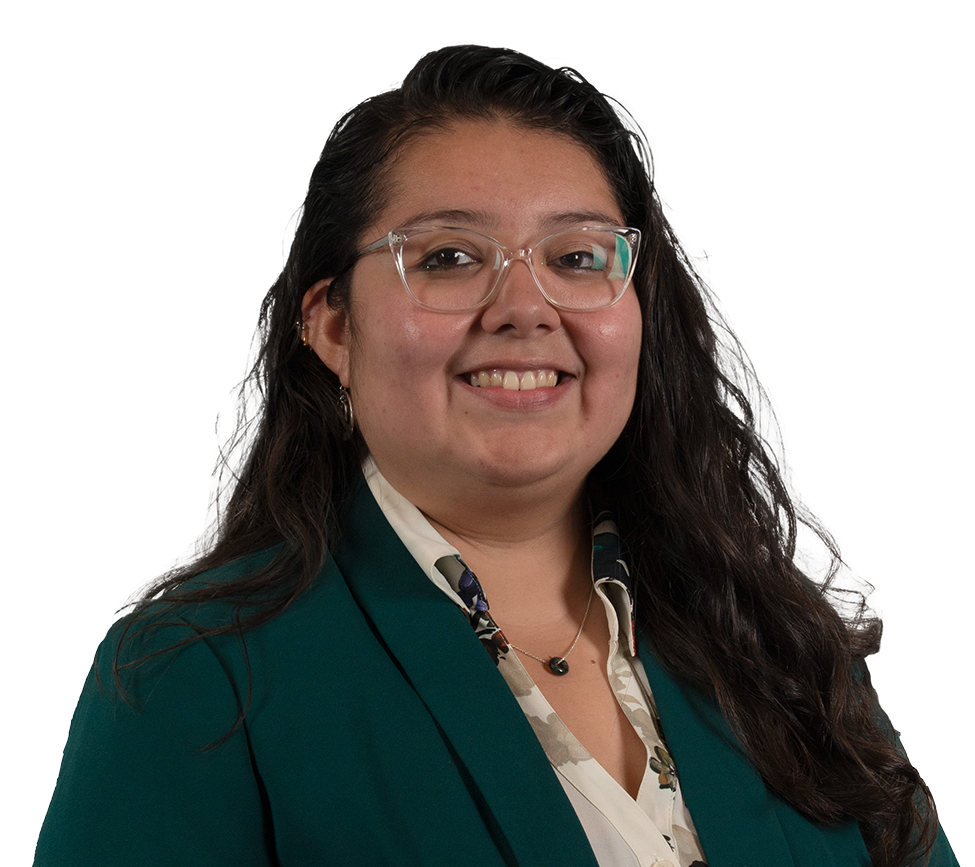Arefin A, Mendoza M, Dame K, Garcia MI, Strauss DG, Ribeiro AJS. Reproducibility of drug-induced effects on the contractility of an engineered heart tissue derived from human pluripotent stem cells. Frontiers in Pharmacology 2023; 14:1212092.
Bramsen JA, Alber BR, Mendoza M, Murray BT, Chen M, Huang P, Mahler GJ. Glycosaminoglycans affect endothelial to mesenchymal transformation, proliferation, and calcification in a 3D model of aortic valve disease. Frontiers in Cardiovascular Medicine 2022; 9:975732.
Brown M, Somma L, Mendoza M, Noh Y, Mahler G, Koh A. Upcycling Compact Discs for Bioelectronic Applications. Nature Communications 2022; 13 (1):1 — 12.
Mendoza M, Chen M, Huang P, Mahler G. Shear and Endothelial Cell Induced Late-stage Calcific Aortic Valve Disease-on-a-chip Model Develops Calcium Phosphate Mineralizations. Lab on a Chip 2022; 22, 1374 — 1385.
Mendoza M, Chen M, Huang P, Mahler G. Abstract P332: Microfluidic Model of Late-stage Calcific Aortic Valve Disease Develops Calcium Phosphate Mineralizations. Circulation Research 2021; 129 (Suppl_1), AP332 — AP332
Mendoza M, Chen M, Murray B, Huang P, Mahler G. Late-stage Calcific Aortic Valve Disease within an Aortic Valve-on-a-chip Model. Heart Valve Society (HVS) Conference Proceedings. Structural Heart 2021; 5 (sup1), 69 — 70.
Brown M, Mendoza M, Chavoshnejad P, Mahler G, Razavi M, Koh A. Electronic-ECM: A Permeable Microporous Elastomer for an Advanced Bio-integrated Continuous Sensing Platform. Advanced Materials Technologies 2020; 5 (7), 2000242.
Han M, Williams S, Mendoza M, Ye X, Zhang H, Calice de Silva V, Thijssen S, Kotanko P, Meyring-Wösten A. Quantifying Physical Activity Levels and Sleep in Hemodialysis Patients Using a Commercially-Available Activity Tracker. Blood Purification 2016; 41(1-3): 194 — 204.
Mendoza M, Han M, Meyring-Wösten A, Wilund K, Kotanko P. It's a Non-Dialysis Day... Do You Know How Your Patient Is Doing? A Case for Research into Interdialytic Activity. Blood Purification 2015; 39, 74 — 83.
Presentations
Mendoza M, Chen M, Murray B, Huang P, Mahler G. Oxidative Low-density Lipoprotein and Shear Induced Early Calcific Aortic Valve Disease on a Chip. Poster Presentation, Keystone Symposia: Engineering Multi-Cellular Living Systems, Keystone, CO, 2022.
Arefin A, Mendoza M, Dame K, Garcia MI, Strauss DG, Ribeiro AJS. Characterization of an Engineered Heart Tissue Containing Cardiomyocytes Differentiated from Human Induced Pluripotent Stem Cells for Predicting Drug Inotropic Effects. Poster Presentation, Society of Toxicology (SOT), 2022.
Mendoza M, Chen M, Murray B, Huang P, Mahler G. Early and Late Calcific Aortic Valve Disease-on-a-chip. Short Talk, Microphysiological Systems (MPS) World Summit, Virtual, 2021.
Mendoza M, Chen M, Murray B, Huang P, Mahler G. Shear- and Chondroitin Sulfate-Induced Microcalcifications within an Aortic Valve-on-a-chip Model. Oral Presentation, Biomedical Engineering Society (BMES), Orlando, Florida, 2021.
Mendoza M, Porras AM, Bellas E. Mental Health Strategies and Resources for Unrepresented Minorities - Celebration of Minorities Luncheon. Co-Moderator, Biomedical Engineering Society (BMES), Orlando, Florida, 2021.
Mendoza M, Chen M, Murray B, Huang P, Mahler G. Microfluidic Model of Late-stage Calcific Aortic Valve Disease Develops Calcium Phosphate Mineralizations. Video E-poster, American Heart Association's Basic Cardiovascular Sciences (BCVS) Scientific Sessions, Virtual, 2021.
Mendoza M, Chen M, Murray B, Huang P, Mahler G. Late-stage Calcific Aortic Valve Disease within an Aortic Valve-on-a-chip Model. Video Presentation, Heart Valve Society (HVS), Virtual, 2021.
Mendoza M, Chen M, Murray B, Huang P, Mahler G. Late-stage Calcific Aortic Valve Disease within a Valve-on-a-chip Model of the Aortic Valve Fibrosa. Short-Talk, LatinXinBME Symposium, Virtual, 2021.
Mendoza M, Huang P, Murray B, Mahler G. Late-stage Calcific Aortic Valve Disease within a Three-Dimensional Valve-on-a-chip Model of the Aortic Valve Fibrosa. Video Presentation, Biomedical Engineering Society (BMES), Virtual, 2020.
Mendoza M, Murray B, Huang P, Mahler G. Glycosaminoglycan-Induced Calcification within a Three-Dimensional Microfluidic Model of the Aortic Valve Fibrosa. Oral Presentation, Emerging Researchers National (ERN) Conference in STEM, Washington, DC, 2020.
Brown M, Mendoza M, Mahler G, Koh A. Fibrous Elastomer for Bio-Integrated Epidermal Electronics. Poster Presentation, Material Research Society (MRS) Fall Meeting, Boston, MA, 2019.
Mendoza M, Huang P, Murray B, Mahler G. An In Vitro Three-Dimensional Microfluidic Model of the Aortic Valve Fibrosa. Poster Presentation, Biomedical Engineering Society (BMES), Philadelphia, PA, 2019.
Mendoza M, Huang P, Murray B, Mahler G. Three-Dimensional Microfluidic Models of the Aortic Valve Fibrosa. Poster Presentation, ComSciCon — Cornell, Ithaca, NY, 2019.
Mendoza M, Huang P, Murray B, Mahler G. Three-Dimensional Microfluidic Models of Healthy and Early Diseased Aortic Valve Fibrosa. Poster Presentation, Gordon Research Conference: Tissue Repair and Regeneration, New London, NH, 2019.
Mendoza M, Mina S, Huang P, Murray B, Mahler G. Investigating Endothelial to Mesenchymal Transformation: A Microfluidic Model of Calcific Aortic Valve Disease. Poster Presentation, Binghamton Biomedical Research Conference, Binghamton, NY, 2019.
Mendoza M, Jones A, Brennan J. Graduate School Misconceptions. Panelist, Society of Hispanic Professional Engineers (SHPE) Region 4: Regional Leadership Development Conference (RLDC), Washington, DC, 2019.
Mendoza M, Mina S, Huang P, Murray B, Mahler G. Investigating Endothelial to Mesenchymal Transformation: A Microfluidic Model of Calcific Aortic Valve Disease. Poster Presentation, Biomedical Engineering Society (BMES), Atlanta, GA, 2018.
Agnello T, Alderfer L, Charlebois C, Choi S, Mendoza M. 1Haler: The Pocket Rescue Inhaler Revolutionizing Asthma Care. Interactive Exhibit, ImagineRIT. Rochester, NY, 2017.
Agnello T, Alderfer L, Charlebois C, Choi S, Mendoza M. 1Haler: The Pocket Rescue Inhaler Revolutionizing Asthma Care. Poster Presentation, Northeast Bioengineering Conference, New Brunswick, NJ, 2017.
Han M, Williams S, Meyring-Wösten A, Calice de Silva V, Mendoza M, Zhang H, Ye X, Thijssen S, Kotanko P. Quantifying Physical Activity Levels and Sleep in Hemodialysis Patients Using Commercially-Available Physical Activity Tracker. Poster Presentation, American Society of Nephrology Kidney Week, San Diego, CA, 2015.
Mendoza M, Perry S, Carter R, Casillo S, Gaborski T. Cell Characterization on Polydimethylsiloxane (PDMS) of Varying Stiffness and Surface Topography. Poster Presentation, Upstate Louis Stokes Alliance for Minority Participation Student Leadership Conference, Syracuse, NY, 2015.
Mendoza M, Perry S, Carter R, Casillo S, Gaborski T. Cell Characterization on Polydimethylsiloxane (PDMS) of Varying Stiffness and Surface Topography. Poster Presentation, RIT Undergraduate Research Symposium, Rochester, NY, 2015.

